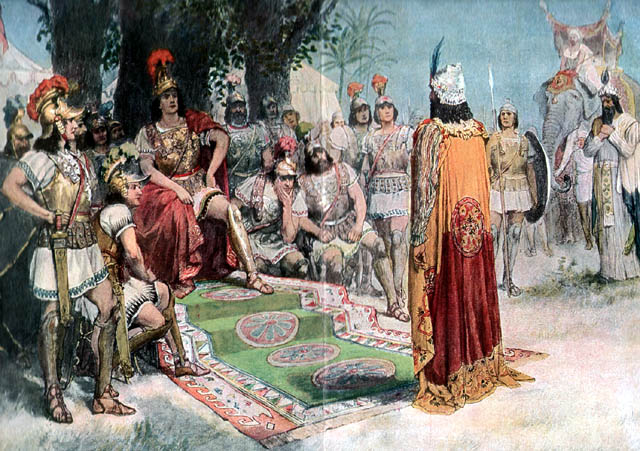4e de couverture :
India is a land of long cultural continuities, and it's age-old and venerable traditions are in many ways still alive in India today. Abraham Eraly here explores the fascinating story of the origins of this civilisation, and the lifestyles of its ancient people.
The story begins with the Indus Civilisation, which endured for a thousand years between 2500 and 1500 BC. It was eventually superseded by Aryan migrants, who composed, on the banks of the rivers of Punjab, the Vedas, the oldest religious literature in an Indo-European language. The Vedic tradition gradually transformed into classical Hinduism, and an all-embracing and holistic worldview emerged.
The central focus of the book is on the life and teachings of Buddha, whose compassionate wisdom would, over a millennium, transform the very psyche of Asia.
The closing chapters of the book deal with the fall of the Mauryan Empire, the largest and most rigorously organised empire in Indian history, and portray the life of its great philosopher-king, Asoka, whose emblem, the Buddhist wheel of virtue, today adorns the national flag of India.
Le livre relate la période de l'histoire indienne allant de l'arrivée et de l'implantation des premiers habitants en Inde jusqu'à la fin de la dynastie Maurya en 187 avant J.C. Dans son ouvrage, l'auteur s'attarde particulièrement sur la vie et l'enseignement du Bouddha ainsi que sur le souverain maurya Asoka.
Je dois avouer que, d'une manière générale, j'ai trouvé le livre particulièrement pénible à lire et que, fait très rare, j'ai sauté plusieurs chapitres, notamment ceux relatifs à l'organisation administrative de la société indienne durant les ère védique et maurya. Les parties les plus intéressantes sont celles qui traitent de la civilisation de l'Indus, de la vie du Bouddha, de la campagne militaire d'Alexandre le Grand et du règne d'Asoka.
L'écriture manque de fluidité. L'auteur ne parvient pas à nous intéresser véritablement. Il accumule quantité de données, de détails et de conjectures qui finissent par nous lasser tant ils alourdissent le texte. et freinent la progression de la lecture. Bref, un livre que je ne recommande pas particulièrement.




